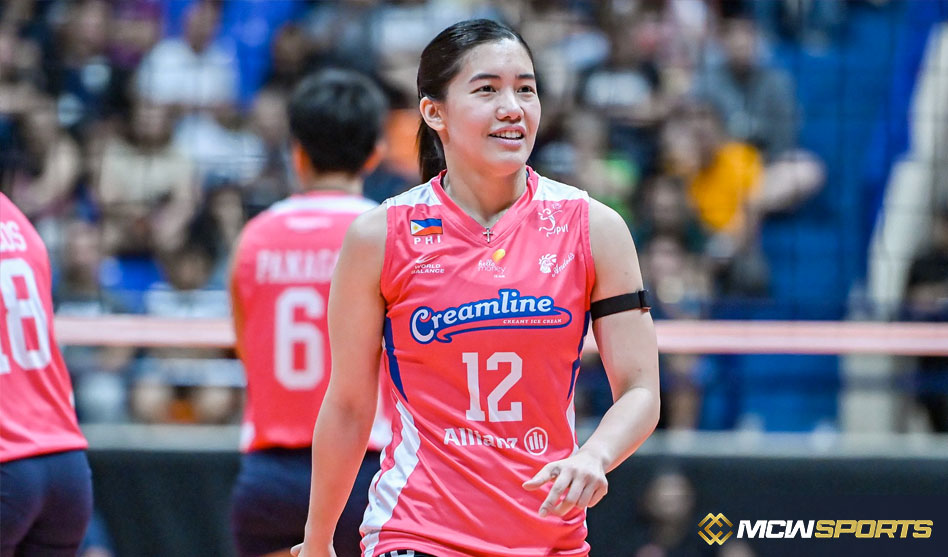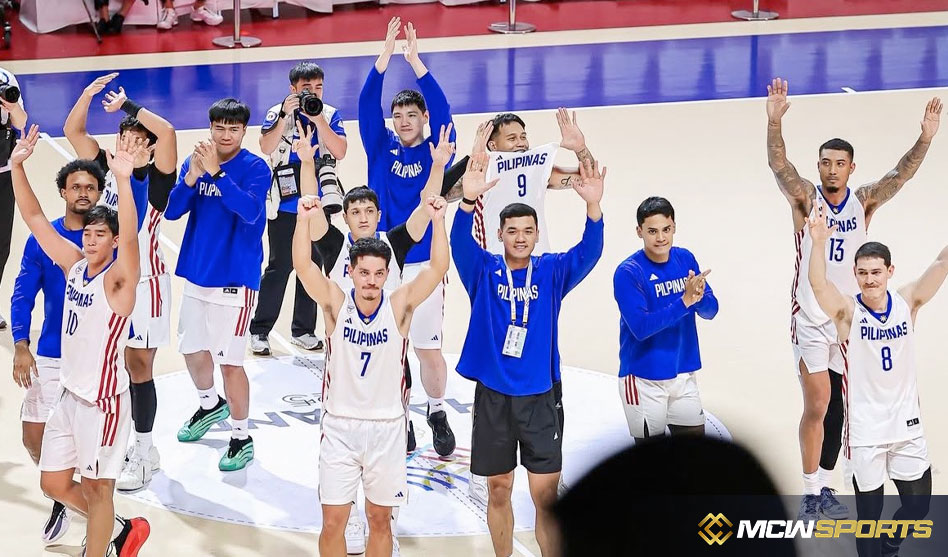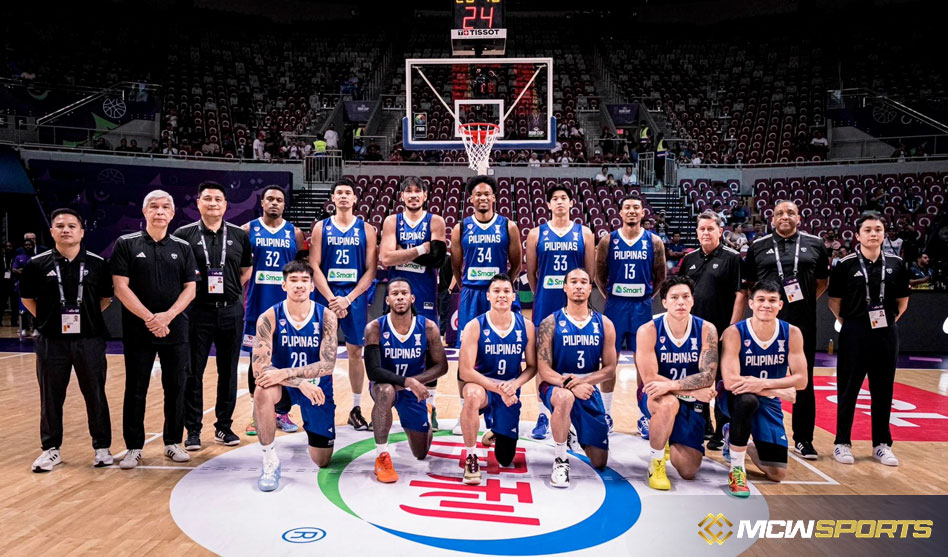MANILA, Philippines – When the stakes in a crucial FIBA Asia Cup matchup could not have been higher, the naturalized forward once again delivered. He orchestrated a late-game comeback against a strong Saudi Arabian team in Jeddah that resulted in overtime and a 95-88 victory, sending the Philippine national team to the quarterfinals.
Saudi Arabia had a six-point lead late in regulation and looked ready to progress, making the match a lesson in tenacity. The naturalized forward scored most of the team’s last points in regulation, including a game-winning three-pointer in the closing seconds to tie the score and force extra time, as the Philippine squad rallied behind a string of crucial scoring.
Together with the seasoned skipper, three up-and-coming players—Kevin Quiambao, AJ Edu, and Dwight Ramos—outscored the home team 16–9 in overtime, providing the game-winning margin.
With 29 points and five rebounds, the naturalized player led all scorers. In the end, his effective shooting—making three of five long-range attempts—made the difference. Ramos scored 13 points and pulled down nearly ten rebounds, while Quiambao and Edu each contributed 17 points and 11 rebounds.
With 33 points, Muhammad-Ali Abdur-Rahkman led the Saudi team in scoring, and Alsuwailem contributed 26 points and 14 rebounds. Through a lot of regulation, their combined efforts had given the host team momentum, resulting in a tense environment that put the visiting Filipinos to the test.
The naturalized player’s late-game genius, according to head coach Tim Cone, was in line with his reputation for performing well under pressure. His comments demonstrated a long-standing awareness of his import’s propensity for high-pressure conversions, a trait that has consistently determined championship results during his time with both the club and the national side.
With the victory, Gilas Pilipinas advances to face the two-time defending champions, Australia, in the quarterfinals, setting up a highly anticipated matchup. It also indicates a big improvement over previous campaigns and a noteworthy comeback after past tournament defeats.
This match served as yet another chapter in the veteran’s clutch performance legacy, solidifying his standing as a player who helps the Philippines win games. The result highlights both the development of younger talent prepared to take over the mantle and the lasting worth of expertise under duress.
The game moved quickly from the first tip, with both teams trading baskets in the first few minutes. The Philippines relied on rapid ball movement and outside shooting to keep within striking distance, while Saudi Arabia used its size and physicality to create an interior presence.
Thanks to their effective play in the paint, the home team had a slight lead at the end of the first half. Although the Philippines displayed moments of genius, Saudi Arabia was able to keep control going into the third quarter thanks to turnovers and lost opportunities.
The second half saw a momentary change in momentum as the visitors went on a run, but Saudi Arabia responded with crucial baskets to take back the lead by several possessions. The home audience, sensing an upset, was calling for their team to finish the game by the middle of the fourth quarter.
The seasoned forward assumed command at this moment. He steadily reduced the gap by scoring on back-to-back plays and figuring out how to get shots while facing fierce defensive pressure. In addition to tying the game, his long three-pointer in the closing seconds sapped the crowd’s momentum and forced overtime.
The Philippines performed more calmly during the additional time. While the seasoned forward continued to offer stability and leadership on the court, Quiambao, Edu, and Ramos took advantage of defensive stops to score important baskets. Clearly worn out, Saudi Arabia found it difficult to match the visitors’ vigor and scoring speed in the closing minutes.
The Philippine bench burst into cheers when the final buzzer sounded. The team’s perseverance, flexibility, and faith in their system were all demonstrated by the win, which went beyond simply moving on to the next round. It demonstrated a healthy mix of young contributions and seasoned leadership, indicating a bright future going into the quarterfinals.
Australia, a team with a track record of winning championships, will now face a difficult opponent. Gilas Pilipinas must maintain the same spirit of perseverance, improve its performance, and keep relying on the youthful core’s developing talent as well as the seasoned presence of its naturalized star in order to progress.

 English
English










